Thursday
With PhotoCalorie, the study subjects would simply take pictures of their food and enter a description, separating each food by commas and multiplying each item by its respective portion size. This information then queries our nutrition database of 60,000 foods, and returns the nutrition information to the user and the researchers in real-time, totally eliminating the need for data entry all together. This also offers the researchers (or physicians using this in their private practice) a never-before-seen window into the actual eating behaviors of their subjects or patients, allowing them to visually confirm that the subject's description matches the portions depicted in the photo.
As I mentioned in a previous post, we are currently working with researchers out of Harvard Medical School to incorporate PhotoCalorie into their 5 year clinical trial, which to our knowledge is the first time in the history of dietary research that a photographic food journal is being used in a large study, and we are very excited about it!!
Friday
Dr. Jeffry Gerber, one of the experts on AWLR and a family doc in Denver who treats all his patients with low carbohydrate and paleo nutrition. He presented about food politics, the history of nutrition and agriculture, as well as the amazing success he has seen in his patients using low carb.
Dr. Keith Runyan, also an expert on the registry, and a nephrologist who uses low carbohydrate diets to treat his patients, as well as himself. He has an amazing story, being diagnosed with Type 1 Diabetes in adulthood. Here is how he described his nutritional evolution towards paleo from his website:
"Ever since I was diagnosed with type 1 diabetes mellitus in 1998, the ADA has recommended a low fat diet in line with the dietary fat-heart disease hypothesis since heart and vascular disease is the most common cause of death of the diabetic patient. Specifically, a dietary intake of 50 - 60% of calories from carbohydrates (carbs) has been recommended, some of which may be simple sugars. In theory, I thought this seemed plausible, since the ADA recommended counting carbohydrate grams in the diet to be balanced with insulin, in my case, or other diabetes medications (for those with type 2 diabetes). However, after 2 years of weighing my food or otherwise calculating the grams of carbohydrates eaten with each meal, there was no significant improvement in blood sugar control and no improvement in the number or severity of hypoglycemic episodes (low blood sugars)...
I transitioned to this low carbohydrate ketogenic diet to address both of my issues, namely diabetes control and fueling endurance exercise with excellent results. My blood sugars are better controlled and hypoglycemia is quite unusual. I have had several blood sugar readings in the range of 46 to 60 mg/dl without any symptoms of hypoglycemia. Readings this low prior to the ketogenic diet would have caused symptoms of hypoglycemia. On the ketogenic diet, however, these symptoms are absent presumably due to the use of ketones by the body and brain. I am able to exercise with no apparent loss of energy or power while consuming relatively little sugar during exercise to prevent hypoglycemia. I measure my blood sugar while exercising usually every 60 - 90 mins or if I feel my blood sugar might be low. My blood tests have improved in the typical pattern seen on a ketogenic diet. Triglycerides decreased from an average of 76 to 65 mg/dL, HDL cholesterol increased from an average of 61 to 90 mg/dL, the triglyceride/HDL ratio decreased from 1.31 to 0.72, the calculated LDL cholesterol increased from an average of 103 to 162 mg/dL."
Dr. Eric Westman - The president elect of the ASBP, and the co-author of The New Atkins For a New You, was incredibly nice, invited me to dinner, and introduced me to tons of people.
Dr. Warren Willey - Bodybuilder turned osteopathic doctor, with a non-traditional skills and unmatched knowledge of how the foods you eat change your serum, urine, and saliva levels of hormones, metabolites and proteins.
Dr. George Bray - One of the biggest names in Obesity research in the world.
Ancestral Weight Loss Registry Talk
At 4:30, I spoke about AWLR and small portion of the data collected from the first 3,000 people who have registered from all 50. U.S. States and over 52 countries around the world.
There were hundreds and hundreds of amazing stories submitted, the majority of which followed a similar theme: What it was like eating a low fat, high carb diet, and how their lives changed once they switched over to a high fat, high protein, calorie unlimited diet.
- 87% reported "rarely" or "never" feeling hungry between meals, while 0.8% said they "always" felt hungry.
- 70% of people eating paleo/low carb did not count their calories at all. They simply listen to their bodies internal regulation mechanisms, eating when they are hungry and stopping when they are full. The only difference is that they don't eat grain, wheat, or sugar.
In these thousands of stories, as soon as they switch over to a paleo diet, it's as if a hunger switch turns off in their brain. As one registry member describes it, "I tried it and the first day I walked around in a daze because I wasn't hungry or thinking about food."
This is likely a major contributor to why these people are losing such massive amounts of weight. They feel satisfied, happy, healthy, and as soon as they are hungry, they eat. Simple as that. It also likely explains why when people in clinical trials are told to eat a high fat high protein, calorie unlimited diet, they usually lose more weight.
The talk was recorded, and will be posted as soon as I receive it.
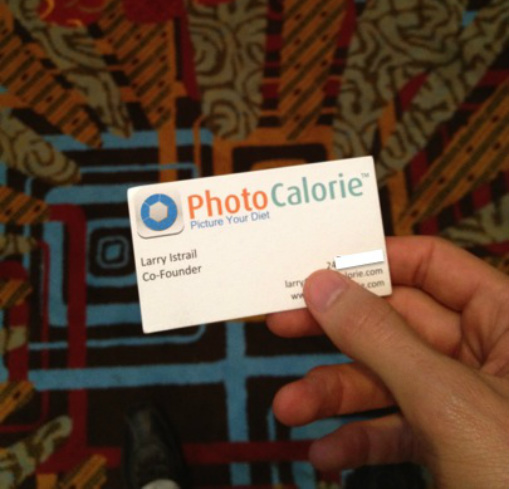
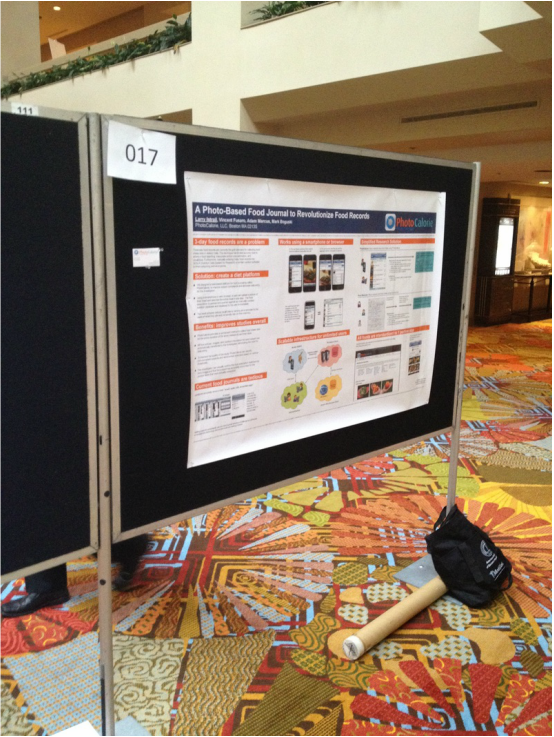
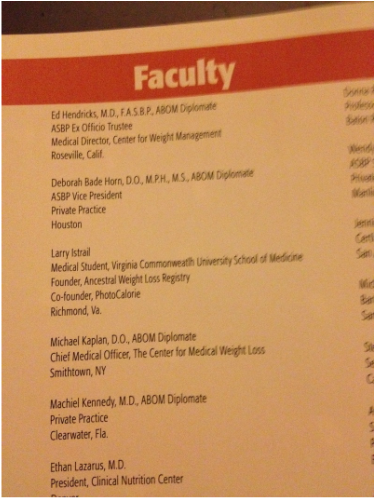
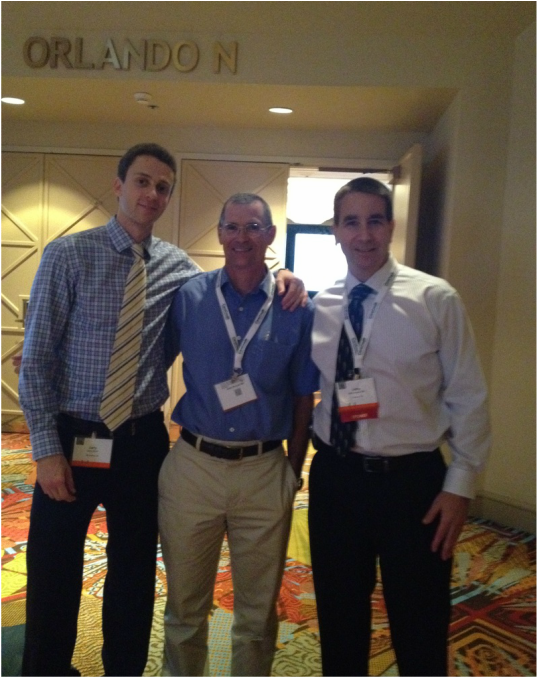
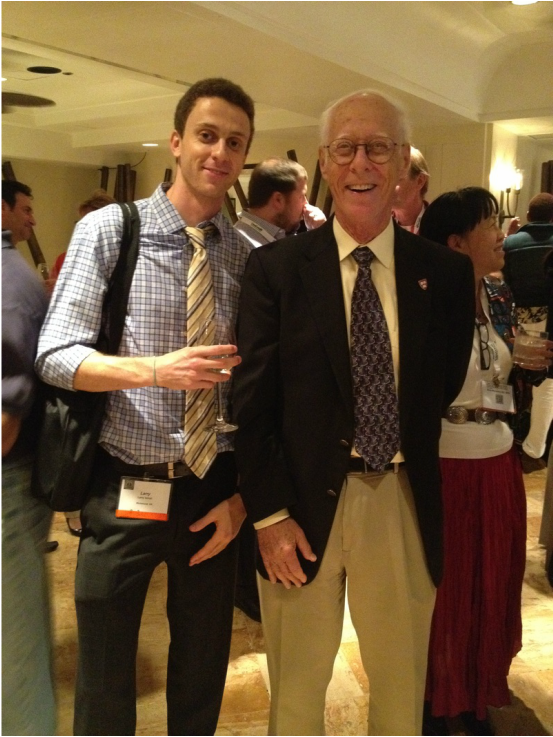

 RSS Feed
RSS Feed
